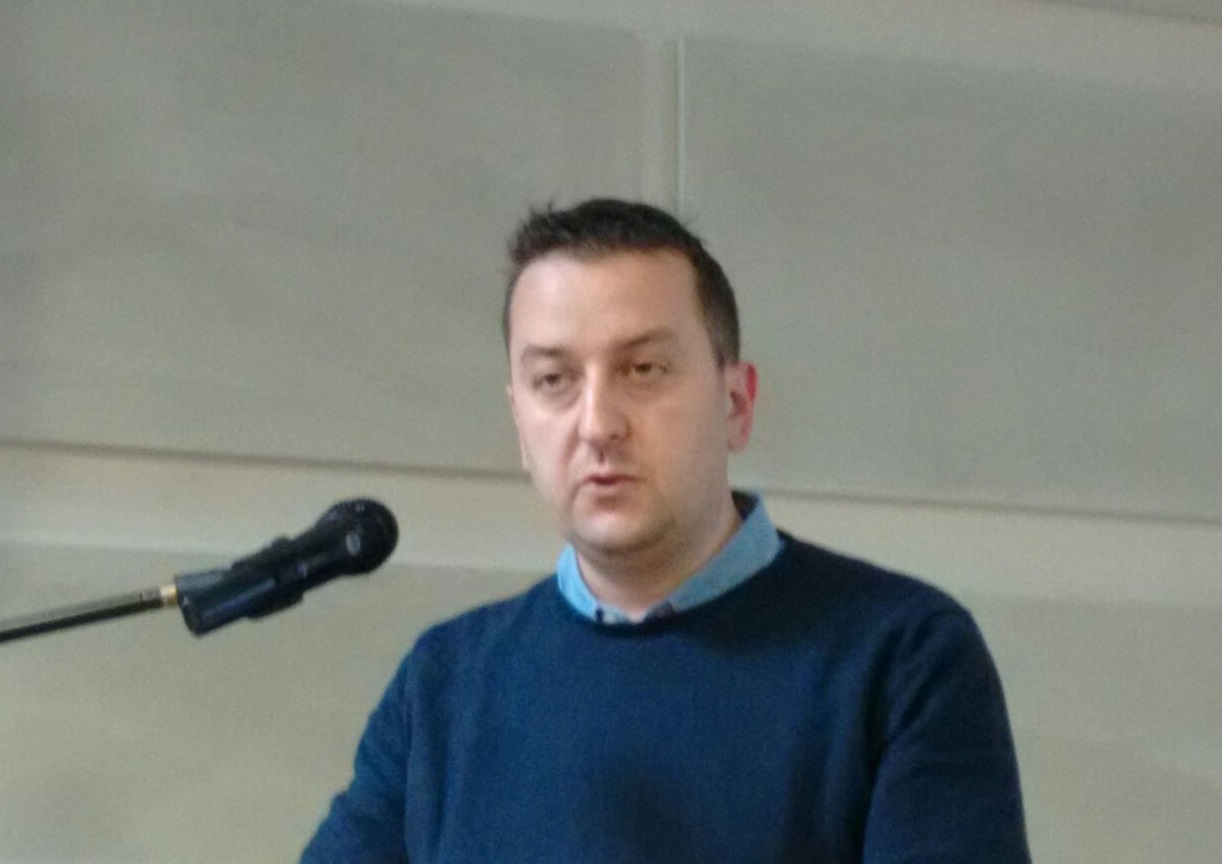We present your delegate from ..... Slovenia!
Published:
The ESSDE delegate from Slovenia is Sandi Modrijan from the Education, Science and Culture Trade Union of Slovenia, ESTUS (Sindikat vzgoje, izobraževanja, znanosti in kulture Slovenije – SVIZ)
Sandi, please, tell us about yourself and describe what a typical work day looks like for you!
Well, the morning is more or less the only predictable time of my day. There is at least some routine which includes a first quick look at e-mails and press clippings. Then I wake up my two children. Sometimes I have to urge them to get out of bed but sometimes they wake me up way too early instead. I get up myself and help everyone to get ready for that day’s challenges at work and in kindergarten. The early processing of emails is important so I get ready for the morning briefing with all other colleagues to reply our general secretary’s standard morning question “What’s new?”.
For the rest of the day, I prefer not to face “typical procedures” as long it doesn’t get too hectic. I post news on our web page and forward them to our shop stewards and members. I take care of our social networks, prepare and send press releases, communicate with media when necessary. I am also in charge of international affairs relevant for our union. There’s always some interesting work to keep me busy.
How long have you been involved for in social dialogue both at national and at European level?
From the very beginning of ETUCE’s efforts to establish the ESSDE, I have been following all developments in this regard. When the ESSDE was launched, my organization appointed me as ESSDE delegate and I have participated in many different activities since then. At national level, I usually don’t attend negotiations but monitor them very carefully and closely as I need to follow up with our members. Our general secretary forwards virtually every piece of information about negotiation developments to me. Then I inform our members and publish the news on the web site.
What is the current situation with regard to the education social dialogue in Slovenia?
Probably the best description of our social dialogue could be that we are “not unsatisfied”. This assessment reflects the current state of cooperation with the Ministry of Education. I can say that, we are respected as a competent, powerful and professional social partner. We are thus invited to consultations, working group meetings and other relevant activities. The cooperation between us and the ministry could be significantly worse. I experienced that it used to be difficult in the previous years,
What are the main issues at stake for ESTUS?
It seems that since the beginning of the economic and financial crisis, we have been constantly busy with negotiations about costs-cutting and salary freezing measures. We managed to uphold certain standards in kindergartens and schools and to resist all neoliberal attempts which would have seriously affected the quality and accessibility to public education and not to mention also the hundreds of teachers and the support personnel that would risk to their jobs.
Despite the crisis being officially over and despite a signed agreement between the unions and the government from the end of last year where both parties agreed to eliminate some of the austerity measures immediately and negotiate about eliminating the rest as soon as possible, the government namely the minister of finance keeps returning to the negotiation table with proposals that merely prolong saving. Some proposals include ideas that we already clearly and resoundingly rejected during the last years, even with strikes against the closing of little schools in rural areas or the increase of class sizes.
As far as the education sector is concerned, the main issue at stake at this very moment is about the teachers’ working conditions. At the beginning of 2016, the Slovenian Court of Auditors noted that the Ministry of Education acted inefficiently in terms of regulating teachers’ working hours and working obligations. This question is very important for us and we are participating very actively in debates on this issue and in the Ministry’s working group.
What opportunities does your engagement in the ESSDE possibly open up for your work at home and vice versa?
It is of course highly advantageous to be well informed about the developments in education both at EU as well as at national level. This is why participation in the ESSDE provides an excellent opportunity to learn about challenges, trends, changes, etc. and to get to know good practices from other countries. As changes in our communities and education system occur all the time, there are always very topical issues that I like to discuss with my colleagues in the ESSDE.
With regards to the very new ESSDE work program 2016-17, what topic lies at the heart of the concerns of ESTUS members and why?
The issue of “public/private developments in education” seems currently most topical. Actually, this has been the case rather for many years. I am thinking in particular of a the Supreme Court’s decision from the beginning of this year to equalize the financing of private primary schools with the financing of public schools. Considering also all the (austerity) attempts to reduce costs for public education, outsource services (kitchens, cleaning) and recommendations from institutions such as the IMF, then the answer is even clearer and more logical.